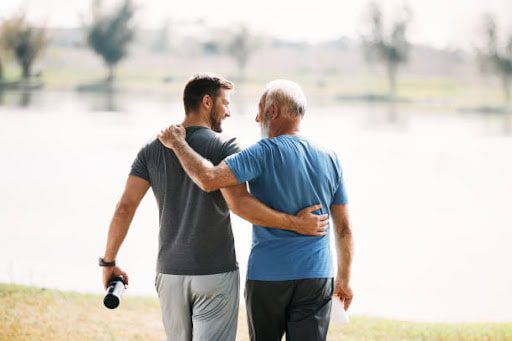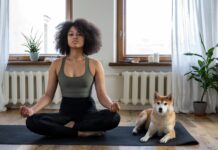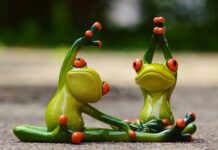Key Points
- Many busy individuals often forget that physical activity is vital in maintaining optimum health. Living in our fast-paced world often affects us to become inactive and have a sedentary lifestyle.
- Ageing isn’t just about our age in numbers. It’s more about our biological age, how healthy our body is, and how our physical activities, aside from our diet, influence our overall health.
- While we can look generally healthy on the outside, many factors can influence how our body ages. Practising an active lifestyle is essential to ensure a long and healthy life.
- There are tons of benefits exercise can provide our body. Some of them include slowing down the decrease of our muscle mass, improving our bone density, and reducing the risk of developing age-related diseases.
- Four types of exercise help us achieve a healthier body – endurance, balance, strength and flexibility exercises. While performing just one type of exercise of these is beneficial, performing all of them can offer more benefits.
I’m sure you’ve heard of the proverb’ health is wealth’, and by now, you shouldn’t be surprised to know that this is a proven fact. We, humans, are naturally inclined to survive, establish goals, and achieve them. Hence, we require optimal health to accomplish what we want in life.
Although it is true that we all make our own paths, we all have different things to deal with. For example, someone you know could have all the riches in the world but can’t enjoy them due to an illness or a chronic disease to battle. Or another person can be in top shape and has all the time in the world, achieving his dreams because he is able and does not have health problems that can hinder him. These possibilities are just some of the many reasons why taking care of our bodies is vital. You see, regardless of your age right now, your greatest asset is your health. You being healthy and strong is your most powerful weapon.
Do you notice how elders shake their heads when they see younger people spending too much time on their cell phones or playing computer games? Yeah, it’s the thought that back in their day, people were out doing recreational activities when they had free time. They are either playing sports, exercising, or doing simple but physical things like walking to the park or to their favourite coffee place. Back in the days when technology wasn’t very much present yet, people were more mobile and active.
Now, with almost everyone busy with their jobs, keeping up with social media, or playing virtual games instead of the ones involving actual physical movements, you might want to ask about your biological age. How old is my body?
In our fast-paced world, our ageing isn’t just about our age in numbers anymore. It’s more about your biological age, how healthy your body is, and how your physical activities, aside from your diet, influence your health status. That is why it is essential to know that while we can look generally healthy on the outside, the state of our body can be older due to many factors. If you want to ensure a long and healthy life without significant medical problems to deal with, you should be curious and start asking, ‘what is my biological age?’.
Exercise and How it Affects Ageing
Exercise is a huge factor in improving our quality of life and is a great defence to slow down the degenerative process of our body or ageing. According to the National Institute on Aging, lack of physical activity greatly contributes to various medical conditions rather than our age in numbers. In fact, research conducted at Brigham Young University by Professor Larry Tucker suggests that someone living a healthy lifestyle, even at the age of 45, can have a biological age of 35.
Another 2015 scientific study published in the Rejuvenation Research journal on the effects of exercise in ageing states that performing regular exercises has multi-system anti-ageing effects. And while regularly performing physical activity cannot reverse the ageing process, it can reduce its detrimental effects, which supports longer life expectancy.
What Happens to the Body When we Exercise?
If you think that exercising can only leave you feeling tired and having sore muscles, there is more to it than temporary physical exhaustion and pain. When we exercise, post-workout effects are a natural occurrence, especially for those who perform exercises they are not accustomed to doing.
Exercising offers a ton of benefits more than how you initially feel. Below are the benefits of keeping active and physically fit:
- It strengthens and empowers your muscles and slows down your muscle mass’s decline;
- It lengthens your telomeres which is a cell structure at the ends of our chromosomes suggested to decrease the risk of developing age-related diseases;
- It improves your bone density, which is often a problem in osteoporosis. Exercise reduces the risks of breaking your bones as you age;
- It helps you control weight, often associated with obesity, high blood pressure, and diseases like diabetes and kidney problems;
- It improves your cognition, helping you avoid age-related cognitive decline.
Types of Exercise
There are four kinds of exercise great for improving your general wellness and physical ability. While sticking to one type of exercise gives you benefits, practising all aspects of exercise can provide more.
Endurance
Also referred to as aerobic exercise, endurance targets and improves your cardiovascular, respiratory and circulatory systems. This typical exercise makes you breathe hard and increases your heart rate. Performing endurance exercises such as walking, jogging, biking, swimming, biking and playing sports that involve running, like tennis or basketball, will help you build your stamina to withstand more intense exercises.
Balance
This type of exercise aims to help you with balance, coordination and strengthening your core. It is usually prescribed for older adults who have declining balance and are prone to injuries, but it can also be beneficial to younger people. You can perform balance exercises at home by standing on one foot, performing heel-to-toe walks, balance walks and sit-to-stand exercises. Specific exercise programs such as Tai Chi and Yoga are some of the best balance exercises you can also practise as they promote great strengthening and stretching of muscles that are helpful for balance.
Strength
Muscle-strengthening exercise or particularly known as resistance training is beneficial to help you preserve and increase your muscle mass. While this is also helpful in reducing body fat or weight loss, it can also improve your bones and help you do daily activities effortlessly. This exercise can be done by performing push-ups, pullups, squats, lunges or using equipment like barbells and dumbbells for weights or resistance bands.
Flexibility
Flexibility exercises, or stretching exercises, improve your range of motion, enabling you to move more comfortably and ease stiffness. It helps avoid injuries, reduces pain and improves posture, balance and muscle soreness. You can perform stretches such as shoulder, standing side, back, knee-to-chest and many more.
Take Away
Being physically active should not be something to ignore if you want to achieve a healthy body. Aside from enabling you to live a happy and worry-free life, being physically active also gives you many health benefits, including slowing down your ageing. While it cannot stop you from gaining another number on top of your age each year, it can influence your appearance and your general well-being.
Regardless of your age, keeping active and exercising daily, even for just a short period, greatly impacts your health. Thus, no matter how busy you are, you must find time to give your body attention.

| [donate]
| Help keep news FREE for our readersSupporting your local community newspaper/online news outlet is crucial now more than ever. If you believe in independent journalism,then consider making a valuable contribution by making a one-time or monthly donation. We operate in rural areas where providing unbiased news can be challenging. |



















